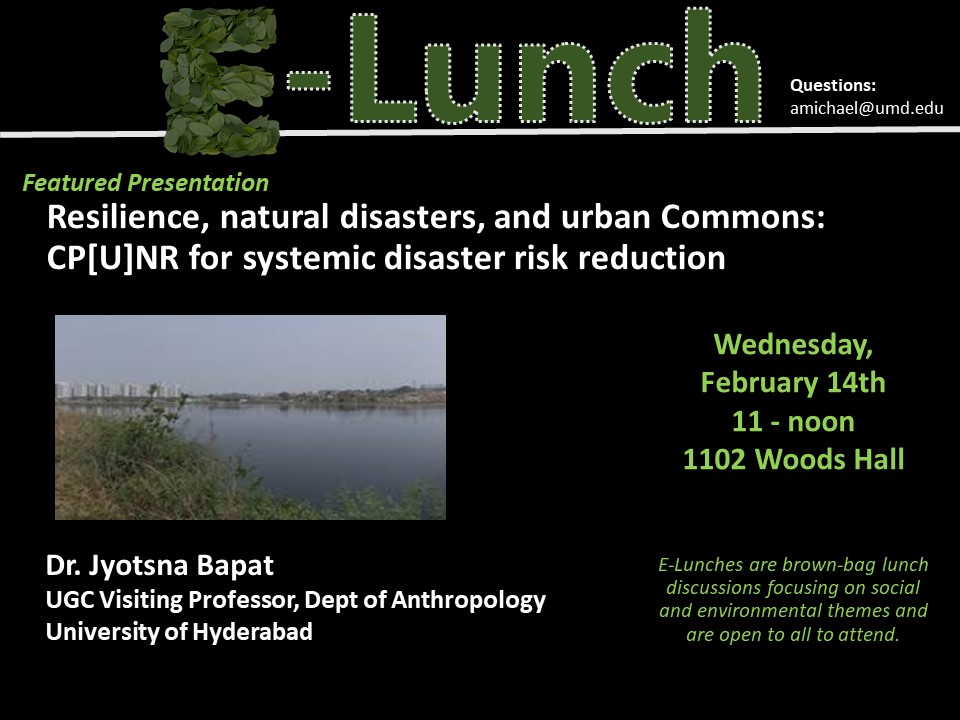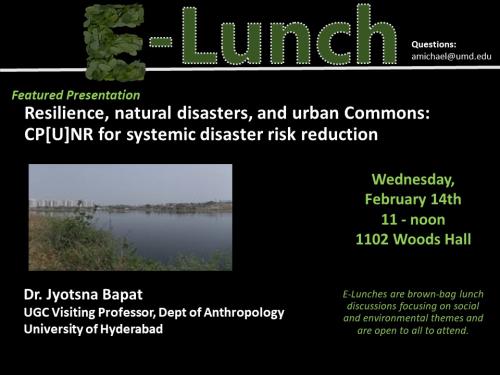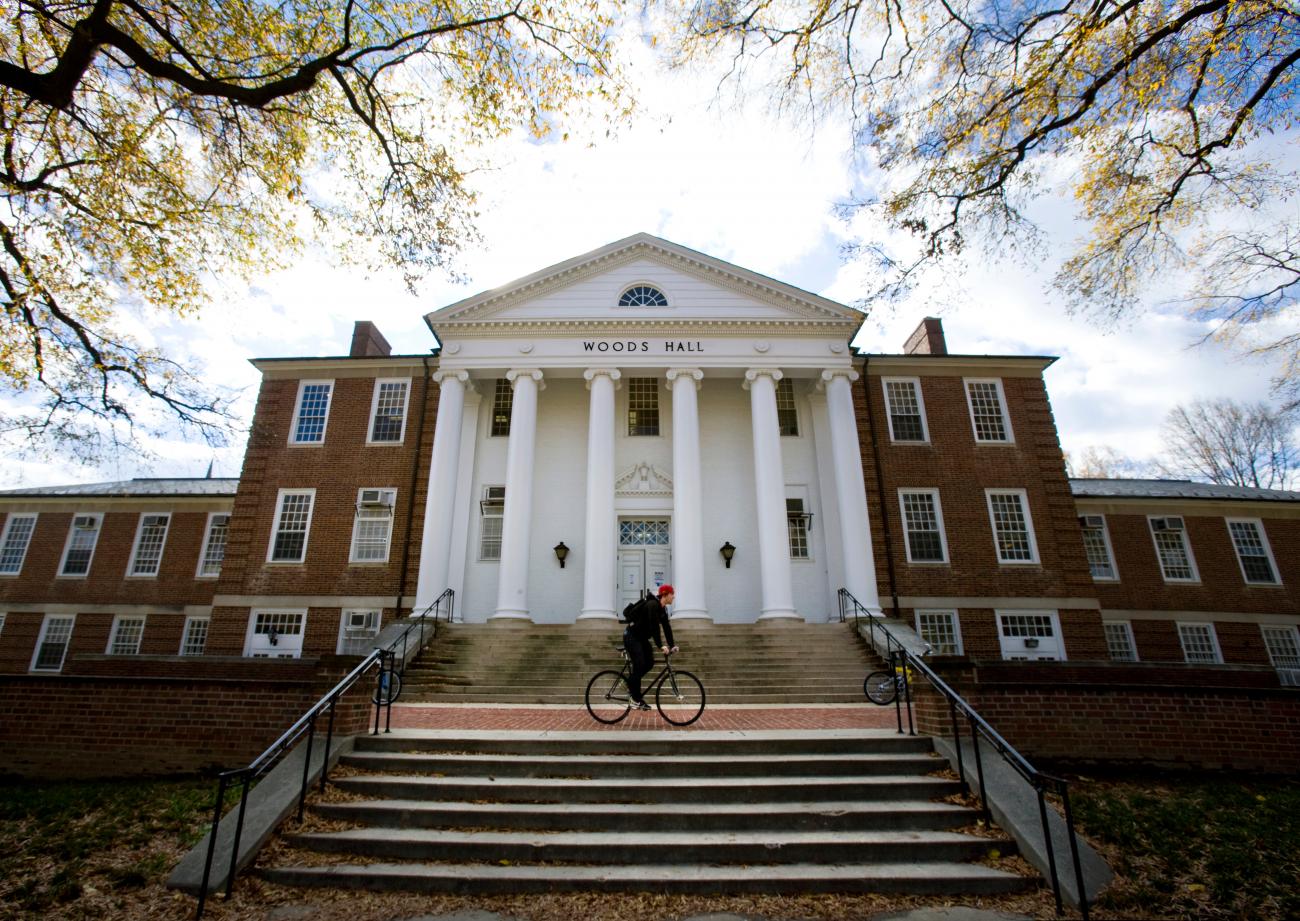E-Lunches
E-Lunches – Discussions highlighting ecological and environmental anthropology and related topics
Join students and faculty in the Department of Anthropology for our monthly E-Lunch series! E-Lunches are informal brown bag lunch discussions, featuring different topics and presenters each month that focus on ecological and environmental themes. The intent of the series is to foster a relaxed discussion space to share current work, solicit feedback, and promote communication and collaboration within and outside of anthropology. E-Lunches are open to all to attend and typically take place on Wednesdays from 11 to noon in 1102 Woods Hall (click here for the full schedule).
Until further notice, E-Lunches will not be available via webinar for the 2017-2018 school year.
If you have any E-Lunch related questions, please contact Adriane Michaelis (amichael [at] umd [dot] edu).
Upcoming E-Lunch: February 14th
Please join us Wednesday, February 14th to hear from Dr. Jyotsna Bapat (UGC Visiting Professor, Department of Anthropology, University of Hyderabad) as she shares her work on the use of small ponds to foster resilience against natural disasters in India.
(See below for full abstract.)

Resilience, Natural Disasters, and Urban Commons: Cp[U]Nr For Systemic Disaster Risk Reduction
Dr. Jyotsna Bapat
UGC Visiting Professor, Department of Anthropology, University of Hyderabad
Climate change related increase in natural disasters is reality. In cities of developing countries, most of the proposed solutions for resilience are infrastructure investment, through development aid funding. We argue, additionally, small localized tanks and ponds are an effective way to handle resilience against floods, droughts and earthquakes and have additional benefits as they have complex environmental linkages to people. But they are largely ignored and threatened with anhelation.
Paper traces historical evolution and survival of tanks in land locked city of Hyderabad, in Telangana district of Andhra Pradesh state in India as a case study. Created as Commons, with public private partnership, to solve the problem of floods, draughts during the Nizam reign, they faced ‘tragedy of Commons’, and started disappearing after change in the regime. Proposed solution to this tragedy is ‘comedy of Commons’ through more intensive usage. This helped salvage about one third of them. Partially successful salvage of the tanks demonstrates, just engineering solutions to sustain them have limits and local community cooperation is essential for their long-term sustainability in the face of bottom up governance. Linking them today effective flood control and draught management will provide resilience and systemic disaster risk reduction.
(Authors acknowledge gratefully, HUDA, RNE, University of Hyderabad and Library of Congress in Washington DC for making this paper possible.)



